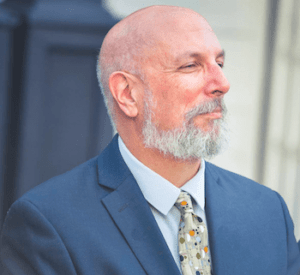How do you stay interested in something for decades? How do you change with the times? Work through the areas that you don’t yet know, and let the practice itself give you insight into how you work?
If you’ve read more than a few books on Chinese medicine, the fingerprints of Dan Bensky has certainly been on at least one of them. In addition to his medicine practice, he’s been involved in both the translation and editing of books on Chinese medicine since the late 70’s. He has taught and lectured widely over the years. And is one of the founders of the Seattle Institute of East Asian Medicine.
In this episode I sit down for a conversation with Dan with an eye toward the long arc of practice and how while our work centers on patient care, it involves a whole lot more.
- What sparked Dan’s interest in Chinese medicine
- The strength of Chinese medicine is in its multiple viewpoints and methods
- It’s not about being right, it’s about being helpful
- The difference between precision and accuracy
- Dropping judgment in the treatment room
- When things go well or go wrong we need to remember, it’s not about us
- What to do when things go wrong
- What is crucial in maintaining a practice over decades
- Patient cooperation vs patient compliance
- It’s the patient’s response to what we do that is the treatment
- Everything about life is a little murky, and working through some terms in Chinese can be a bit murky as well, and turns out to be helpful in clinical work
- Sound, resonance and the sage
- The importance of developing insight into how you work
- How Dan manages so many different projects and interests
A good piece of evidence for kidney yang deficiency is someone looking significantly shorter when they sit down than when they stand up.
 Dan Bensky
Dan Bensky
I’ve been interested in things East Asian since I was a boy and stumbled into Traditional East Asian Medicine [TEAM] by chance in the early 1970’s. At the time it was not only very hard to find a place to study, it was even hard to know what or how to study.
This sense of wonder has stayed with me for the past 45 years.
My experiences, in Taiwan, Japan, China and the US have shown me that the greatest thing about this medicine is that it has so many tools that aid in being open to paying attention to and helping our patients on a multitude of levels.
Similarly, engagement with the medicine demands that we dive into the traditions without being stuck in them so that we can connect to and be a part of them. I have been helped along this path when, again by chance, I became interested in osteopathic medicine in the late 1970’s and had the good fortune to go to Michigan State University where I was able to work with some amazing teachers. It became quickly obvious to me that TEAM and osteopathy were complementary on many, many levels and I’ve been working on integrating them and attempting to understand how each illuminates the other ever since.
Links and Resources
Dan teaches Engaging Vitality, a palpitory approach to acupuncture both in the United States and Europe. It’s a useful set of clinical tools that will help to get quick and direct feedback on your patient’s response to your interventions.
He is one of the founders of the Seattle Institute of East Asian Medicine.
Dan is the medical editor at Eastland Press, by the way, they have some great books coming out this fall. And they have recently released an app that puts the Material Media and the Formulas and Strategies on the computer in your hand.
Join the discussion!
Leave a comment on Qiological’s Facebook page.
